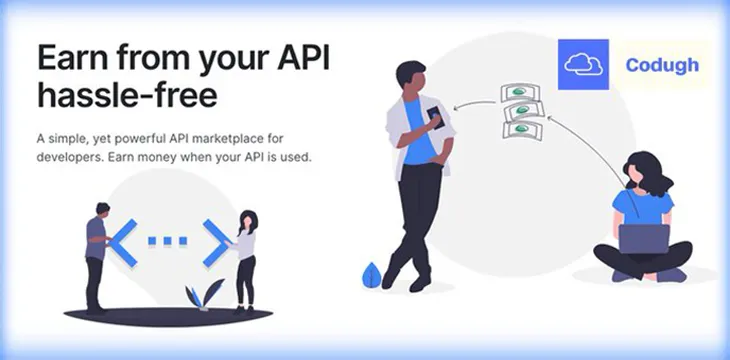|
Getting your Trinity Audio player ready...
|
The long-anticipated API Marketplace from Codugh is now available to the public. The Australia-based service enables developers to create small pieces of code and make them available on a pay-to-use basis. The public release should see a new flood of microtransactions on the BSV blockchain, and create a new economy for coders to earn money, whether working full or part-time on their projects.
Codugh solves a problem many part-time developers have faced for years: they create useful smaller snippets of code that can be plugged into larger applications as features but are usually forced to make that work available for free. If they’re working on passion projects in between paid work, they usually don’t have time to build complete applications they could sell for lots of money.
Happy to announce the public release of the Codugh API Marketplace 🚀. Sign up now and profit from your API in minutes.https://t.co/gi9gd0pcXd
— Codugh (@Codugh) August 13, 2021
While other paid marketplaces for code snippets do exist, the economy is different. Fiat currency and credit card systems don’t handle micropayments, meaning payouts to developers need to be bundled and paid out at intervals, e.g., once a month. Other blockchains, such as BTC and Ethereum, don’t help much there either—the transaction capacity is limited, fees too high, or the network clogged.
BSV’s capacity for large volumes of micro- and nano-transactions, along with its fees of one cent or less per transaction, allowed Codugh to create a new kind of marketplace. This one makes code available for payments on a per-use basis. For instance, a developer uses a piece of code (like an API) from the Codugh marketplace as part of a larger application. Whenever an end-user uses the app to make an API call, it makes an automated micropayment to the person who created the API. There’s no waiting for payments to be collected or bundled, either. The automated process sees the payment go directly to the API developer.
That can be a godsend for hitherto-unpaid developers working on code in their spare time, and who often don’t have the luxury of waiting months for payouts.
Hackathon prize and TAAL deal
Codugh won the second Bitcoin Association BSV Hackathon in October 2019, pitching their working proof-of-concept as finalists before a panel of judges and a voting audience at CoinGeek Seoul.
In June 2020, the company signed a share purchase and equity financing agreement with Bitcoin data processing firm TAAL Distributed Information Technologies Inc. (CSE:TAAL | FWB:9SQ1 | OTC: TAALF). The deal also saw TAAL take a seat on Codugh’s board.
Platforms like Codugh’s take time to build, but the economic model it uses is easy to understand and apply to a variety of circumstances. Out in the wider world, there are thousands of workers who could benefit from instant micropayments for their labor. Why then, does no monetary system permit them to do it?
Bitcoin, blockchain and digital assets originally promised so much. These sorts of models were imagined, and people began to build them, over a decade ago. However technical and human-imposed limitations on those networks (like BTC) have seen them fall over in times of high demand or become something little better than the clunky fiat currency-based financial networks they sought to replace.
BTC’s often-claimed status as “digital gold” makes it useful only to a small number of large bagholders, but it does not create the innovative kind of new economies blockchain originally proposed. BSV microtransactions can benefit anyone, anywhere, whether large or small. With professional transaction processing operations like TAAL and others, transactions can stay fast and cheap. Bitcoin’s original technology keeps them secure.
Watch: CoinGeek Zurich panel, Small Payments, Big Power: Micro & Nano-Payments with BSV

 07-09-2025
07-09-2025 





